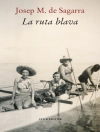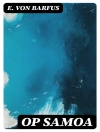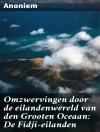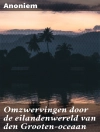In ‘The Island of Desire, ‘ Robert Dean Frisbie presents a mesmerizing narrative that explores the intricate interplay between love and the longing for paradise. Set against the backdrop of the South Pacific, Frisbie’s lyrical prose immerses readers in a world teeming with vivid imagery and sensory detail, depicting the allure and complexities of idealized living. The book artfully balances romantic idealism with the stark realities of island life, delving into themes of isolation, cultural encounters, and the profound impact of nature on human emotions, thus situating itself within the broader context of early 20th-century adventure literature. Frisbie, a notable American writer and traveler who spent significant time in Polynesia, was deeply influenced by his experiences in the islands. His firsthand knowledge of the region’s landscapes and cultures imbues the text with authenticity and depth. Frisbie’s unique blend of wistfulness and realism reflects his own struggles with identity and belonging, making this work not only a narrative of escapism but also a personal exploration of self-discovery amidst the allure of the tropical paradise. I wholeheartedly recommend ‘The Island of Desire’ to readers who seek both adventure and introspection. Frisbie’s evocative storytelling will captivate those yearning for a deeper understanding of the nuances of desire, offering not only a glimpse into a forgotten world but also timeless insights into the human condition.
Circa l’autore
Robert Dean Frisbie (1896 – 1948) was an American writer whose evocative work provided a poignant glimpse into life in the South Pacific. Born in Cleveland, Ohio, Frisbie traveled extensively before settling in the Cook Islands, where he immersed himself in island culture. His experiences in this remote part of the world served as a lush backdrop for his literary endeavors. His most well-known book, ‘The Island of Desire, ‘ captures the quintessence of the idyllic yet challenging life on a tropical island and reflects his deep appreciation for the Polynesian way of life. Frisbie’s writing is often characterized by a blend of romance and realism, interweaving vivid descriptions of the landscape with the stark realities of living in isolation. Although not as widely recognized as some of his contemporaries, Frisbie’s work offers valuable insights into the South Pacific’s cultural and environmental milieu during the early 20th century. His storytelling reflects an era of exploration and adventure, and his literary contributions continue to resonate with readers seeking to escape to the remote and enchanting islands he so lovingly depicted.











